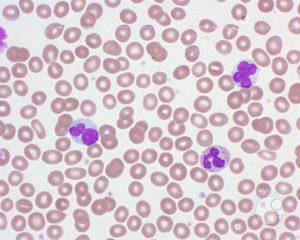As of now, India is struggling to breathe. Perhaps, I would say the situation is getting better. Sadly, India’s COVID-19 death toll is the highest in the world, and television news shows desperate need for oxygen, ICU beds, and space in a crematorium so that people can say a final goodbye to their dear ones. All this sounds heartbreaking, filling our hearts with anger, anguish, and helplessness. And yet we must find hope in a hopeless situation. Even if it is only for a few moments. How can someone feel hopeful at a time when everything seems to collapse and the fear of loneliness looms over our heads every day?
Likewise, it is with cancer also. Cancer, as we all know, is a life-threatening disease. Still, we are asked to show hope and faith while getting treated. Someone has truly quoted, “There is light at the end of a tunnel.” Yes, there sure is. And we can say this because there is a new hope of cancer treatment in India called Immunotherapy cancer treatment. Medical and science have shown advancement over the years and yet again there is a new treatment emerging making sure to reduce the death statistics in cancer patients. So are you ready to get on board with us to learn about this new treatment?
Let’s get to it!
What is Immunotherapy?
Immunotherapy is a cancer treatment that helps the immune system fight cancer. Yes, this is possible. How? Your immune system can help your body fight infections and other harmful diseases. It is made up of white blood cells called platelets that fight infection in the body and tissue of the lymph system. Immunotherapy is also called biological therapy that uses substances made from living organisms to treat cancer and by cancer, we mean all types of cancer. This is the latest cancer cure news 2021 all around the world.
How does immunotherapy work against cancer?
The function of the immune system is to detect and destroy tumor cells and also prevent and curb the growth of abnormal cells in the body. For instance, mostly immune cells are found in and around the cancerous cells. These cells called tumor-infiltrating lymphocytes (TIL) are assigned that the immune cells are responding to the tumor. People with TILs in their tumors have a better prognosis than those without them.
Even if the immune system can slow or prevent the cancer growth, cancer cells need to be completely destroyed by the immune cells.
For instance:
- Cancer cells may have genetic changes that make them less visible to the immune system.
- May have proteins on their surface that cause immune cells to shut down.
- Cancer cells may change the normal cells in the tumor’s environment so that they obstruct the immune system’s response to the cancer cells.
The job of immunotherapy treatment is to act against the cancer cells.
New cancer treatment immunotherapy and its Types:
The following are the types of immunotherapy to help treat cancer.
- Immune Checkpoint inhibitors:
These are drugs that block the immunological checkpoints. These checkpoints are part of the immune system that keep the immune system strong and responsive. By blocking, they help the immune to respond more strongly to cancer.
- T-cell transfer therapy:
This treatment naturally boosts the natural ability of your T-cells to fight cancer. Immune cells from your tumor are extracted in this treatment. Those that are most effective in fighting cancer are chosen or modified in the lab to better destroy cancer cells, produced in huge batches, and injected back into your body by a vein needle.
It is called by various names such as immune cell therapy, adoptive immunotherapy therapy and adoptive cell therapy.
- Monoclonal antibodies:
This is also called therapeutic antibodies. These are immune system proteins that have been engineered to bind to specific targets on cancer cells in the lab. Some monoclonal antibodies are used to label cancer cells so that the immune system can see and eliminate them more easily. Immunotherapy is a term that refers to the use of monoclonal antibodies.
- Treatment vaccines:
These are vaccines that work against cancer by boosting immune cells’ response to cancer cells. These vaccines are different from the ones that help prevent the disease.
- Immune system modulators:
This is another way to boost immune cells’ response to fight cancer. Some of these medicines target specific elements of the immune system, while others have a broader impact on the immune system.
Which cancers can be treated with immunotherapy treatment?
Fortunately, immunotherapy has been approved to treat various kinds of cancer. However, it hasn’t replaced other treatment options such as surgery, radiotherapy and chemotherapy. Your doctor will be the best person to guide you if immunotherapy can help treat your cancer.
What are the side effects of immunotherapy?
Every treatment comes with certain side effects and immunotherapy is no exception to it. Immunotherapy can have adverse effects, many of which occur when your body’s immune system, which has been boosted to fight cancer, inadvertently attacks healthy cells and tissues.
How is immunotherapy treatment given?
Immunotherapy can be given in a number of ways such as:
- Intravenous (IV):
This enters the vein directly.
- Oral:
It can be swallowed and it comes in the form of a pill.
- Topical:
It comes in a cream that can be applied. It is mostly used in skin cancer.
- Intravesical:
It goes directly into the bladder.
Tata Memorial hospital is one of the hospitals in India considered to be the immunotherapy hospital in India which is the most promising area in oncology right now. While it offers some new hope for the patients, this therapy comes with a cost, and merely 5-10% of people can afford it.
Conclusion:
Immunotherapy can be given in a cycle followed by a rest period to help your body recover and build healthy cells. Your doctor will be able to tell if the immunotherapy is working on your body with the help of a few scans and tests. More research is carried out to improve immunotherapy treatment.




